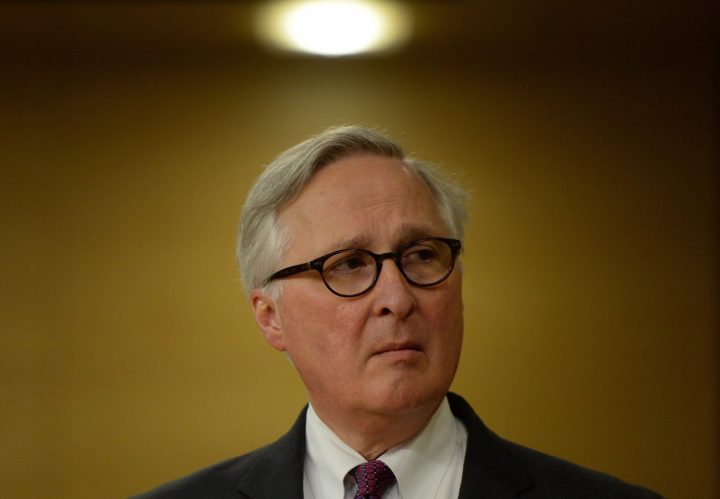A former head of Canada’s spy agency is warning that this country is resting too heavily on its laurels at a time of rising global threats and upheaval, including dysfunction among its Western allies and the emergence of China and Russia as aggressive adversaries.

Richard Fadden, a former director of the Canadian Security Intelligence Service and national-security adviser to prime ministers Stephen Harper and Justin Trudeau, says Canada needs to take a hard look at itself to ensure it is ready to face its new reality.
That includes recognizing its adversaries and drawing clear limits over what it will put up with from them, accepting that the United States is not about to resume its traditional leadership role, and rallying its western allies to face these threats in a unified way.
“More than anything, we need to shed the blinders of the past and see the world and our place in it as it is,” said Fadden, who made the comments in a speech while accepting an award from the Conference of Defence Associations Institute.

Get daily National news
He added that with the U.S. no longer the world’s singular superpower, “we need to stand on our own with values and ideas more than we have in the past. And to do this, we must bring to bear patience and consistency along with the resources to match.”

While Fadden has previously voiced concerns about Canada’s failure to adapt to a changing world, his most recent warning carries added relevance with Trudeau and other NATO leaders meeting in London early next month.
France’s President Emmanuel Macron warned in an interview last week that the alliance is suffering from “brain death” because of a lack of U.S. leadership and uncertainty about American commitment to the 70-year-old organization.
Trudeau and other leaders came to the alliance’s defence but Macron’s comments nonetheless touched on an issue that has been of concern to analysts and others for some time, particularly under U.S. President Donald Trump.
In his speech, Fadden warned of the rise of Russia and China and their willingness to pursue their interests to the detriment of the West; a decline in U.S. leadership and failure by Western democracies to unite and fill the gap; the growth of radicalized violence; and cyber threats.

Yet many Western countries have not come to grips with these ever-evolving threats and realities, he warned — and that must change.
“This issue is especially visible in Canada,” he said. “We are surrounded by three oceans and the U.S. so we don’t really feel threatened when, in a totally globalized world, that is unrealistic. … More than anything, we need a clear-eyed view of the world and our place in it.”







Comments
Want to discuss? Please read our Commenting Policy first.